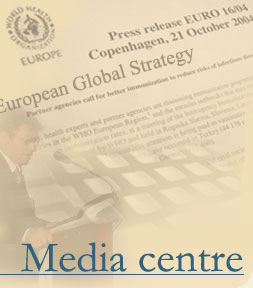43 European Countries Have Yet to Enact Laws on Patients’ Rights
Copenhagen
Six years after the WHO Declaration on the Promotion of Patients’ Rights in Europe (Amsterdam, 1994), more than eight countries (Denmark, Finland, Georgia, Greece, Iceland, Israel, Lithuania, the Netherlands and Norway) have enacted laws on the rights of patients; and four countries (France, Ireland, Portugal and the United Kingdom) have used Patients’ Charters as a tool to promote patients’ rights. The Declaration, combined with the networking and collaboration between WHO and its Member States, has played a major role in this development and will continue to do so. However, there is still a long way to go and the next steps to be taken will be addressed at the Fourth Meeting of the European Partnership on Patient’s Rights and Citizen’s Empowerment (Jerusalem, Israel, 24-26 May 2000).
Moreover, with the increasingly rapid development of genetic research and health databases, concern is rising about informed consent, privacy, confidentiality and individual access, as well as accountability. Consequently, the need for international guidelines is increasing.
The fourth meeting aims to:
- Analyse the ethical issues related to genetic research and health database developments;
- Define the ethical expectations public/patients have towards health service;
- Explore active citizens' participation in decision-making and identify examples
- Investigate legal ethical issues at conflict in health care management;
- Present and discuss the plan of action and future activities of the network;
- Obtain a consensus on establishing sub-regional platforms within the network.
As a result, it is expected that:
- Two working groups will be established to work throughout the year on:
- the ethical aspects of health databases with regard to privacy, confidentiality, individual access and accountability;
- providing examples of good practice on how to implement patients' rights legislation
- The working groups will draft guidelines on both of the aforementioned topics to be further discussed with WHO's European Member States.
The results of both working groups will be presented at the next meeting of the network.
For more information, contact:
|
|
|

